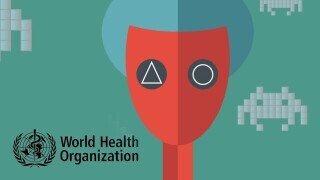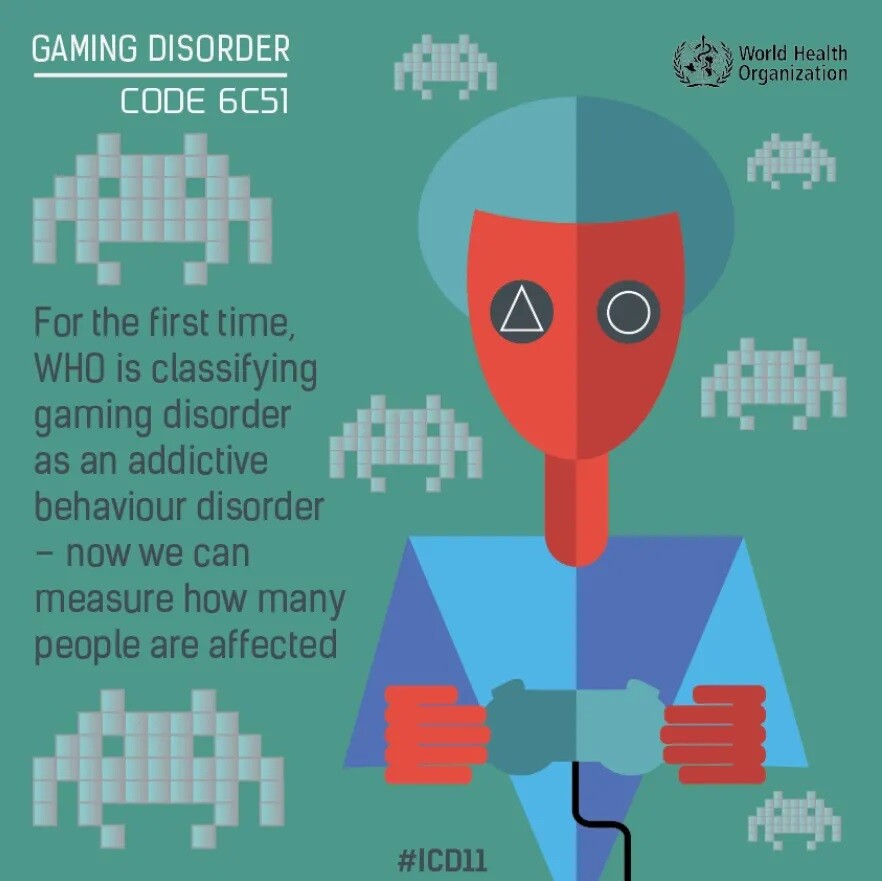Gaming Disorder Is An Official Disease Now, And We're Skeptical

Did you know that kids in China can only indulge in video games for a maximum of three hours per week? It’s true. Ever since last summer, gaming companies are forbidden from giving children access to their games other than on Friday, Saturday, and Sunday from 8pm to 9pm. China calls video games "spiritual opium" and "electronic drugs."
Most people reading this are probably feeling blessed for not living in China, as they should. We wouldn't put video games under the same umbrella as heroin, right? But we are prepared to, um, label gamers as mentally ill. Not just in a lighthearted “gamers are nuts" way but through a formal diagnosis. If you don't know about this, prepare to learn about newly recognized disease known as Gaming Disorder.
The Origin Of An Internationally Recognized Mental Disorder
Don't Miss
The 2013 version of the Diagnostic and Statistical Manual of Mental Disorders suggested a condition for further study, a condition they lamely called Internet Gaming Disorder. Then, in 2018, the World Health Organization announced that the International Classification of Diseases 11th Revision, an alternative to the DSM in the field of psychiatry, took the suggestion to heart.
They turned IGD into a real thing they could totally diagnose you with after January 1st, 2022. They took it so seriously, in fact, that the disorder now encapsulates offline gaming as well. Showing just how familiar they are with video games, the people behind the campaign publicized it using 1978's Space Invaders:

World Health Organization
Gaming Disorder is listed under the code for “Disorders due to substance use or addictive behaviors.” Disorders that cover stuff from alcohol use, to ... opioids and meth addiction. In short, the only reason we outside China aren’t likening games to opium is that we don't have a big cultural history of opium dens here.
Two Years And A Pandemic Later
The World Health Organization’s crackdown on games got derailed by a surprising ally: the pandemic. To fight off this new problem that, who knows, might be larger than the one gaming poses, the WHO encouraged people to play video games at home rather than mingle in crowds.
They began the #PlayApartTogether campaign and recommended video games as an effective way to stop the spread of COVID-19. You even had the WHO director tweeting about saving the world through gaming while trying to "mobilize the gaming industry":
That’s neat. Though, if gaming addiction were as bad as they say, this is the equivalent of creating a #ShootHeroinApartTogether campaign.
Anyway, don’t worry if you get addicted to games, because we have ways to treat you after COVID19 is gone ... If that day ever comes.
How You Might End Up On a 12-Step Program for League of Legends
Even before the WHO’s announcement, you had treatment centers pop up claiming to address video game addiction. You’re one google search away from a bunch of money-hungry private facilities where you can go and get healed:
We know some people game too much, sure. We also know that paying $30K to reSTART so you can learn how to do chores won't fix that issue.
If you are thinking about other programs, either inpatient or outpatient, you can easily find "help."

But Seriously: What Does Actual Science Say About It?
Science says something that might be summarized as “the only pill you need is the chill pill.” They've done a systematic review on treatments, from medication to cognitive behavioral therapy. “Even with the recent uptick in the publication of such clinical trials," says the review, "methodological flaws prevent strong conclusions about the efficacy of any treatment for IGD.” A different one says that neither the psychological nor the pharmacological interventions do much against the symptoms of being a gamer.

Valve
Reviews all point at insufficient evidence that trialed IGD interventions confer a long-term therapeutic benefit, so if you're wondering where to throw your money to heal your poor child, the answer seems to be “nowhere.”
Let's highlight the question raised by dozens of international scientists doing serious work on this: “How can there be clinical samples concerning a mental disorder that should not exist in the first place?” This is a highly publicized “disorder” that relies on arbitrary criteria as a diagnosis tool, as well as one that has little in the way of evidence when it comes to treatment.
Are Video Games Inherently Harmful?
Seriously, are video games really the main issue here? Or is this a formalization of dumb panicking that doesn't have consensus among the scientific community?
Maybe we'd be less annoyed by the disorder if they'd called it “video game addiction.” Rather than “gaming disorder,” which sounds like they're saying gaming is inherently bad. Gaming is not inherently bad. We could point to a study from last year, saying games can even improve your mental health.
Anyway, you don't need to base your opinions on the subject on what the diagnosis manual says. It's not infallible. Remember when the LGBT community, for instance, was under "gender identity disorders" and “psychosexual disorders” not so long ago? When it comes to most mental disorders diagnosis manuals and criteria, if the only tool you have is a hammer, everything begins to look like a nail – a nail that you’ll try to hit after doing a barrel roll.
Top image: Jakub Sisulak/Unsplash